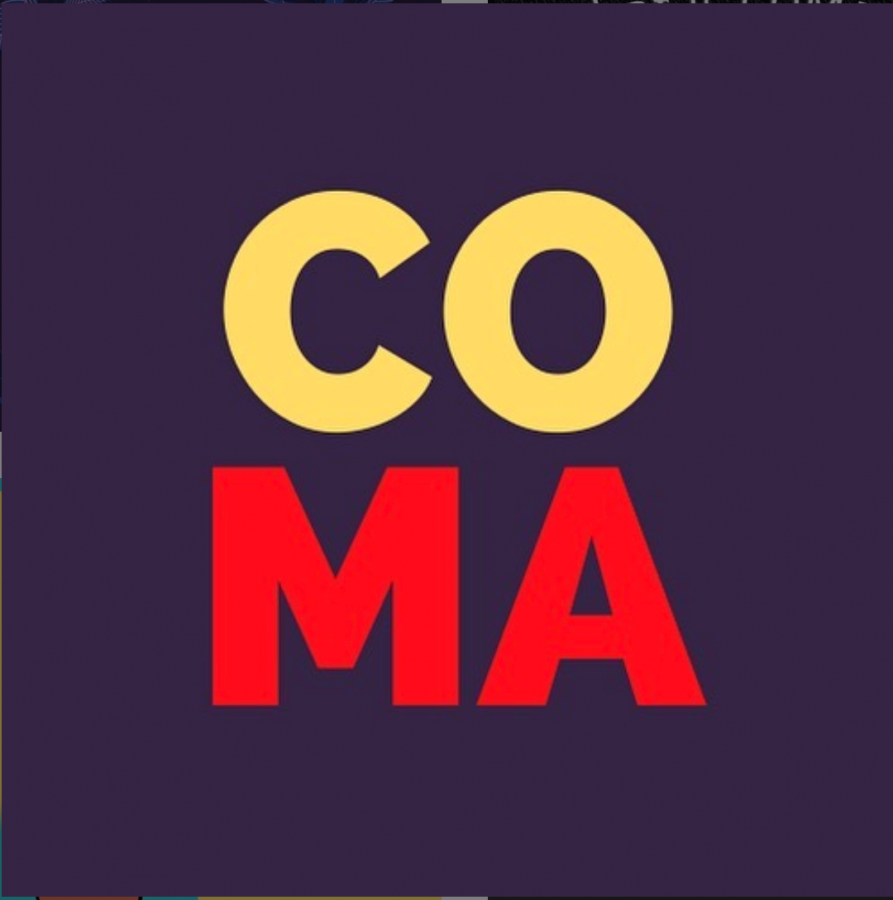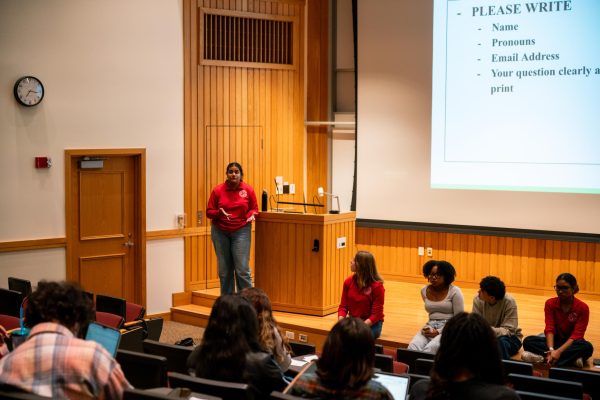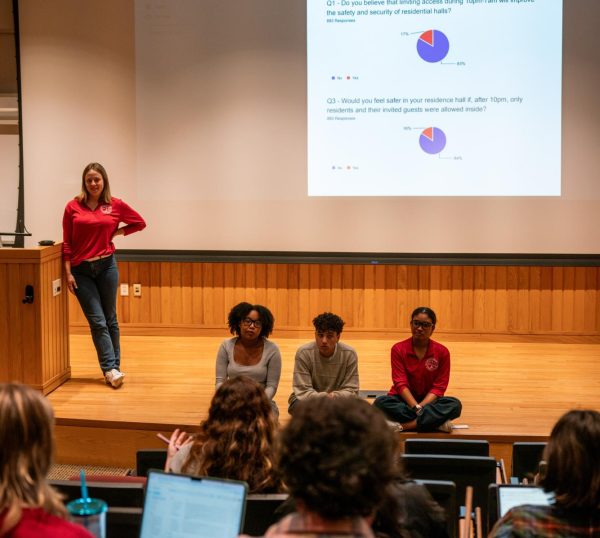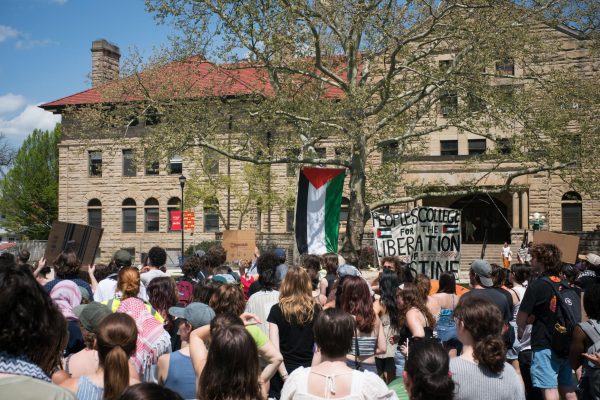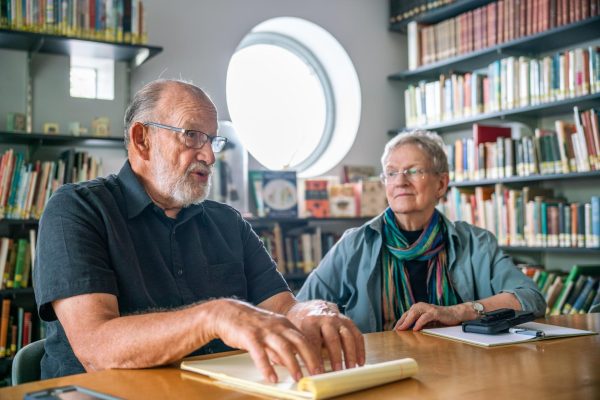Student-Led COMA Fund Provides Support for Obies in Need
The Coronavirus Oberlin Mutual Aid Fund logo.
The Coronavirus Oberlin Mutual Aid Fund, a student-led initiative to assist low-income and first-generation Obies during the pandemic, has raised $45,000 of its $60,000 goal. In the two months since its inception this June, the project has seen an outpouring of community support. COMA will supplement the College’s various emergency funds, offering flexible funding to students who have exhausted other options.
“As a community of Oberlin students, we need to do everything we can to ensure that our peers have the resources they need in order to find safety outside of their Oberlin career as well as the adequate financial resources to succeed,” reads COMA’s mission statement.
Mutual aid is a form of political participation rooted in voluntary community care and cooperation. It aims to provide immediate relief to people in need, holding the belief that existing institutions do not protect — and were never designed to protect — marginalized groups. The practice is often described using the motto “solidarity, not charity.” Rather than having fixed roles of donor and beneficiary, mutual aid emphasizes reciprocal exchange of resources, asserting that interdependence is necessary for human survival.
“When you’re helping your own community, it isn’t an act of charity, and we live out this mission of solidarity by centering non judgment and care for one another,” the COMA team wrote in an email to the Review. “We all understand struggle and the importance of collective care in helping lift up all of a community.”
COMA is headed by a collective of six Oberlin students. College second-year Diana Montero is the only public team member — the other five organizers have elected to remain anonymous until the end of this school year. All six identify as Black, Indigenous, or people of color, and most are low-income or first-generation students.
On June 30, COMA went public and received over $10,000 within 24 hours. The group hit its initial $30,000 target in less than three weeks, prompting a new goal of $60,000. Using these funds, COMA will aid at least 100 students during the 2020–21 school year. Applications will be anonymized and considered based on need, with low-income and first-generation students receiving priority.
Mutual aid projects like COMA are springing up across the country as the pandemic continues to exacerbate inequalities along the lines of race, class, and more. For college students, abrupt campus closures in the spring left many individuals’ safety and education in jeopardy.
“The pandemic has highlighted inequalities between Oberlin students, especially since we were asked to leave campus,” Montero wrote in an email to the Review. “Differences in home environments, resources, and countless other things have suddenly become more clear and more pertinent.”
While the College cultivates a sense of community, the COMA team notes that students come to campus with varying challenges, and that disparities between students still hold true in the virtual classroom.
In May, Student Senate released results from a survey about Oberlin students’ transition to remote learning. Many individuals reported that they lacked access to the resources necessary for online coursework, including computers, printers, scanners, and stable Wi-Fi connection. Others were working from environments that were loud or unsafe. Although many students wrote that their professors had been accommodating, others reported increased workloads and no flexibility.
“At a time like this, it’s more important than ever that we come together and support each other in any way that we can,” Student Senate Chartering Liaison and College second-year Owen Pazderak wrote in an email to the Review. “It’s our responsibility to ensure that each and every one of us is safe, healthy, and cared for, and COMA is doing an extraordinarily commendable job in leading this charge.”
Vice President and Dean of Students Meredith Raimondo also lauded the initiative the COMA team is taking to support the Oberlin community.
“I was heartened but not surprised to see Obies working to support other Obies at this challenging time,” Raimondo wrote in an email to the Review. “That community care is one of my favorite things about this place. I think they are a wonderful supplement to support funds available through the Dean of Students office. I encourage any student who is experiencing financial need to reach out to all available resources. Our shared goal is for students to flourish.”
COMA organizers assert that the absence of adequate federal support in this time of crisis highlights the importance of mutual aid initiatives.
“The pandemic has heightened [the necessity of mutual aid] because the complete lack of governmental support has highlighted how crucial it is to care for one another since institutions will always let people slip through the cracks,” COMA members wrote in an email to the Review.
They urge individuals with financial means to continue funding COMA and other mutual aid projects. They also point out that the median family income of Oberlin students is about $178,000, putting most in the top 20th percentile of American households, according to a 2017 New York Times project.
For anyone looking to support the cause in other ways, COMA encourages people to spread the word about donating and to volunteer skills and services. This could include free rideshares, tutoring, assistance with job and graduate school applications, and emotional support. Finally, COMA organizers stress that individual choices around social distancing hold political significance.
“Remember that your decisions about COVID safety will impact low-income people and Black people the most,” the team wrote. “Support COMA’s mission by wearing your mask, avoiding large gatherings, and practicing social distancing.”
The organizers behind COMA express gratitude for the overwhelming community response. Without any institutional backing, this team has built up an extensive network — one which they say has come together to make a tangible difference.
“It’s always incredible to me how much us students can accomplish on our own — no bureaucracy, no corruption, just passion for serving each other as a community,” Montero wrote in an email to the Review. “I want everyone at Oberlin to know that feeling anger about the inequalities around you is a great way to fuel passion for change. There is power in organizing, and COMA is proof of that.”
Applications to receive COMA funding for the fall semester are currently open and will be accepted until Sept. 18. A second round of fall applications will take place Oct. 26–Nov. 20. Additional information can be found on COMA’s Linktree and Instagram pages. Reach out to [email protected] with any questions.
COMA accepts donations through @comaoberlin on Venmo, $comaoberlin on Cash App, and the team’s GoFundMe campaign.


